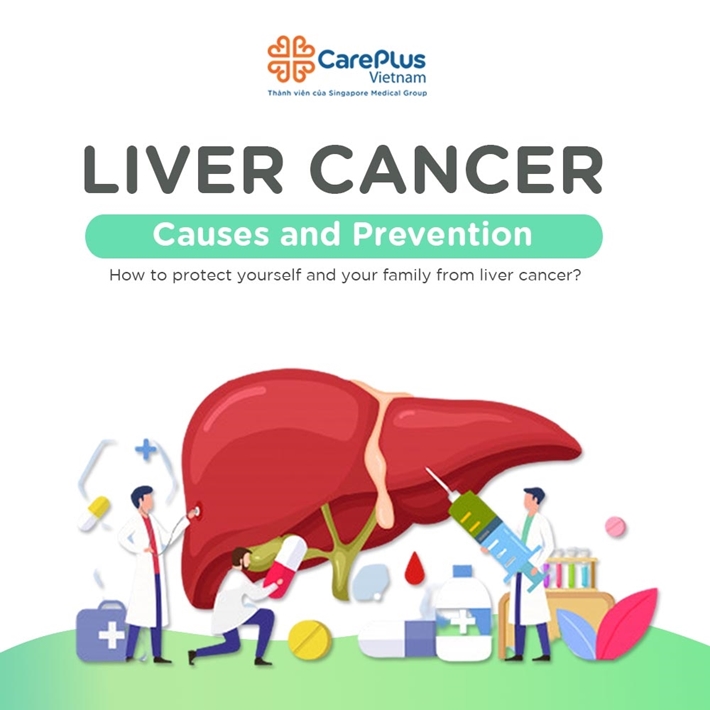Liver Cancers: Causes and Prevention
In response to the Liver Cancer Awareness Month - October, let's explore the dangerous but difficult to detect disease due to this poor onset of symptoms. According to the latest report, liver cancer is the 6th most common cancer in the world with more than 700,000 people diagnosed each year. In Vietnam, liver cancer is leading cancer causing death in both sexes (but men account for a higher rate).

10/19/2020 11:00:17 AM
1. Causes
Currently, science has not determined the cause of liver cancer. However, a number of factors have been shown to increase the risk of the disease:
Cirrhosis
The liver forms scar tissue caused by many types of liver disease (hepatitis, fatty liver and chronic alcoholism). As the scar tissue develops, the liver tries to heal itself by making new cells. The more new cells are created, the greater the risk of mutations, creating tumors, causing the liver to gradually lose its function.
Hepatitis B and hepatitis C
Viral hepatitis is an acute or chronic infection of liver cells that is caused by infection with the liver. Currently, there are 6 types of hepatitis virus called hepatitis A virus, B, C, D, E, G. In Vietnam, hepatitis B and C are most matter because they can cause cirrhosis and cancer.
Wine
Only 10% of the alcohol is excreted through the urine, sweat, and breath, and the remaining 90% goes straight to the liver. If the amount of alcohol is exceeded, the liver cells are overactive, the alcohol turns into acetaldehyde, destroying liver cells, leading to cancer.
Other factors
- Gender: Due to the habit of drinking alcohol, smoking a lot, working stressful, men are more likely to develop liver cancer than women.
Genetics: People with a family history of liver cancer (same bloodline) also have a higher risk of liver cancer.
- Dirty food: Food that is not well preserved is easy to produce mold and mildew. Some fungi can produce Aflatoxin - a powerful carcinogen in the human body.
- Environmental pollution: Exposure to many toxic chemicals from herbicides, pesticides, toxic wastes from industrial plants.
2. Preventing liver cancer
Hepatitis B vaccination: Until now, there is no specific drug for hepatitis B. Getting a hepatitis B vaccine within the first 24 hours of life is the best way to prevent mother-to-child transmission of hepatitis B. In adults, all subjects who have not yet been infected with the hepatitis B virus should be vaccinated as soon as possible.
Risk control for hepatitis C: Hepatitis C is currently not vaccinated. Each person needs to increase their sense of protection from infection by avoiding the pathways of disease transmission, periodic health checks and screening.
Healthy Diet: Eat plenty of fruits and vegetables (green leafy vegetables, carrots, potatoes and citrus fruits), use dairy products, drink tea (especially fresh tea leaves), no choose moldy foods (especially soybeans, peanuts, sweet potatoes, sugarcane, peanut oil), no eat high salt food, limit protein-rich foods, and minimize alcohol and beer.
Maintain healthy living habits: Pay attention to rest appropriately, exercise outdoors with appropriate intensity, know how to control emotions, always keep optimistic.
3. Screening for early treatment
Symptoms of liver cancer are often not obvious, so if there are abnormal symptoms, you should actively examine promptly. Screening for liver diseases periodically is one of the ways to help detect disease early, even when there are no symptoms.
Each person should understand the dangers of liver cancer and have a plan periodically to detect the disease early, have a high chance of cure, and prolong life.
Find out the Liver Screening Package at CarePlus or contact Hotline: 1800 6116 for specific advice.